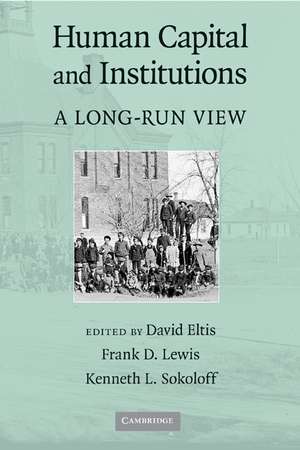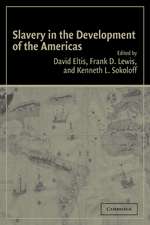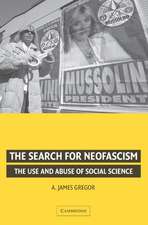Human Capital and Institutions: A Long-Run View
Editat de David Eltis, Frank D. Lewis, Kenneth L. Sokoloffen Limba Engleză Hardback – 16 aug 2009
Preț: 532.18 lei
Preț vechi: 597.95 lei
-11% Nou
Puncte Express: 798
Preț estimativ în valută:
101.88€ • 104.78$ • 84.52£
101.88€ • 104.78$ • 84.52£
Carte tipărită la comandă
Livrare economică 17 februarie-03 martie
Preluare comenzi: 021 569.72.76
Specificații
ISBN-13: 9780521769587
ISBN-10: 0521769582
Pagini: 352
Ilustrații: 29 b/w illus. 1 map 45 tables
Dimensiuni: 155 x 234 x 25 mm
Greutate: 0.61 kg
Editura: Cambridge University Press
Colecția Cambridge University Press
Locul publicării:New York, United States
ISBN-10: 0521769582
Pagini: 352
Ilustrații: 29 b/w illus. 1 map 45 tables
Dimensiuni: 155 x 234 x 25 mm
Greutate: 0.61 kg
Editura: Cambridge University Press
Colecția Cambridge University Press
Locul publicării:New York, United States
Cuprins
Introduction David Eltis and Frank D. Lewis; Part I. Health and Living Standards: 1. Biotechnology and the burden of age-related diseases Robert W. Fogel; 2. Extending the reach of anthropometric history to the distant past Richard H. Steckel; 3. Insecurity, safety nets, and self-help in Victorian and Edwardian England George R. Boyer; Part II. Institutions and Schooling: 4. The evolution of schooling institutions in the Americas, 1800–1925 Stanley L. Engerman, Elisa V. Mariscal, and Kenneth L. Sokoloff; 5. Why the United States led in education: lessons from secondary school expansion, 1910 to 1940 Claudia Goldin and Lawrence F. Katz; 6. The production of engineers in New York colleges and universities, 1800–1950: some new data Michael Edelstein; Part III. Human Capital Outliers: 7. The life-cycle of great artists from Masaccio to Jasper Johns David W. Galenson and Robert Jensen; 8. An elite minority: Jews among the richest 400 Americans Peter Temin; Part IV. Constraints in Labor and Financial Markets: 9. Suffrage and the terms of labor Robert J. Steinfeld; 10. Prodigals and projectors: an economic history of usury laws in the United States from colonial times to 1900 Hugh Rockoff.
Descriere
Human Capital and Institutions brings to the fore the role of political, social, and economic institutions in human capital formation and economic growth. Written by leading economic historians, the chapters in this text offer a broad-based view of institutions and human capital in economic development.












